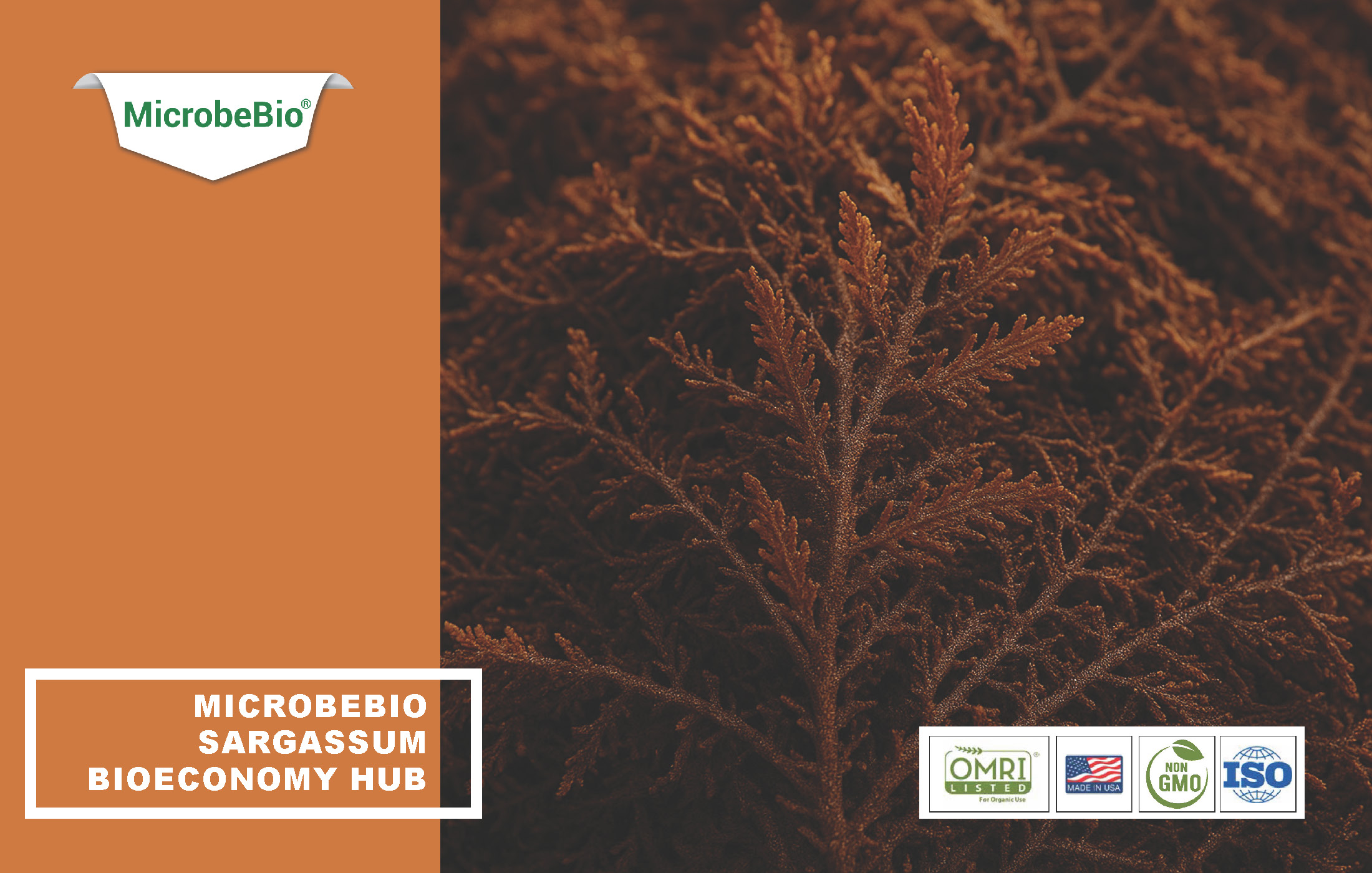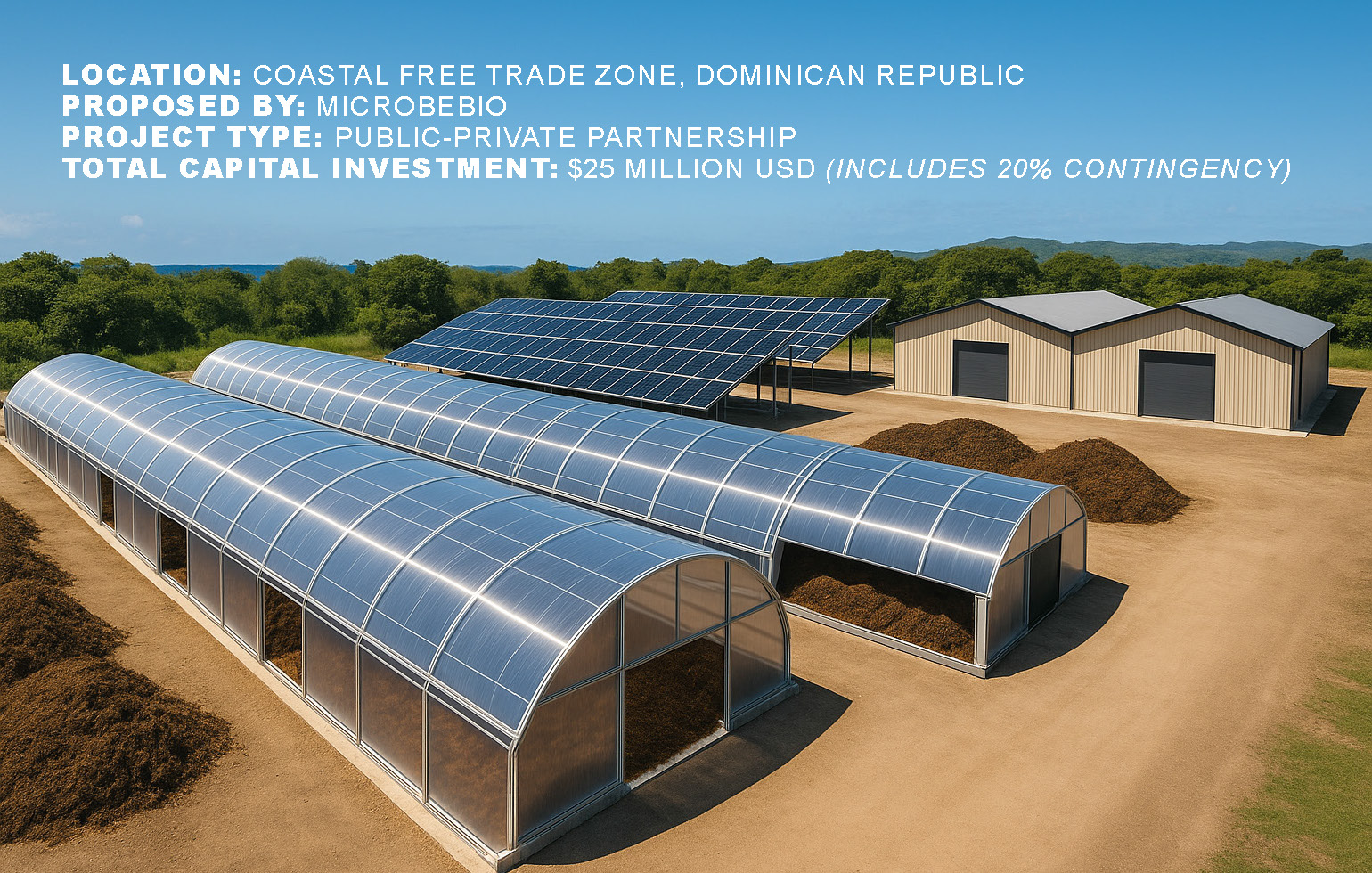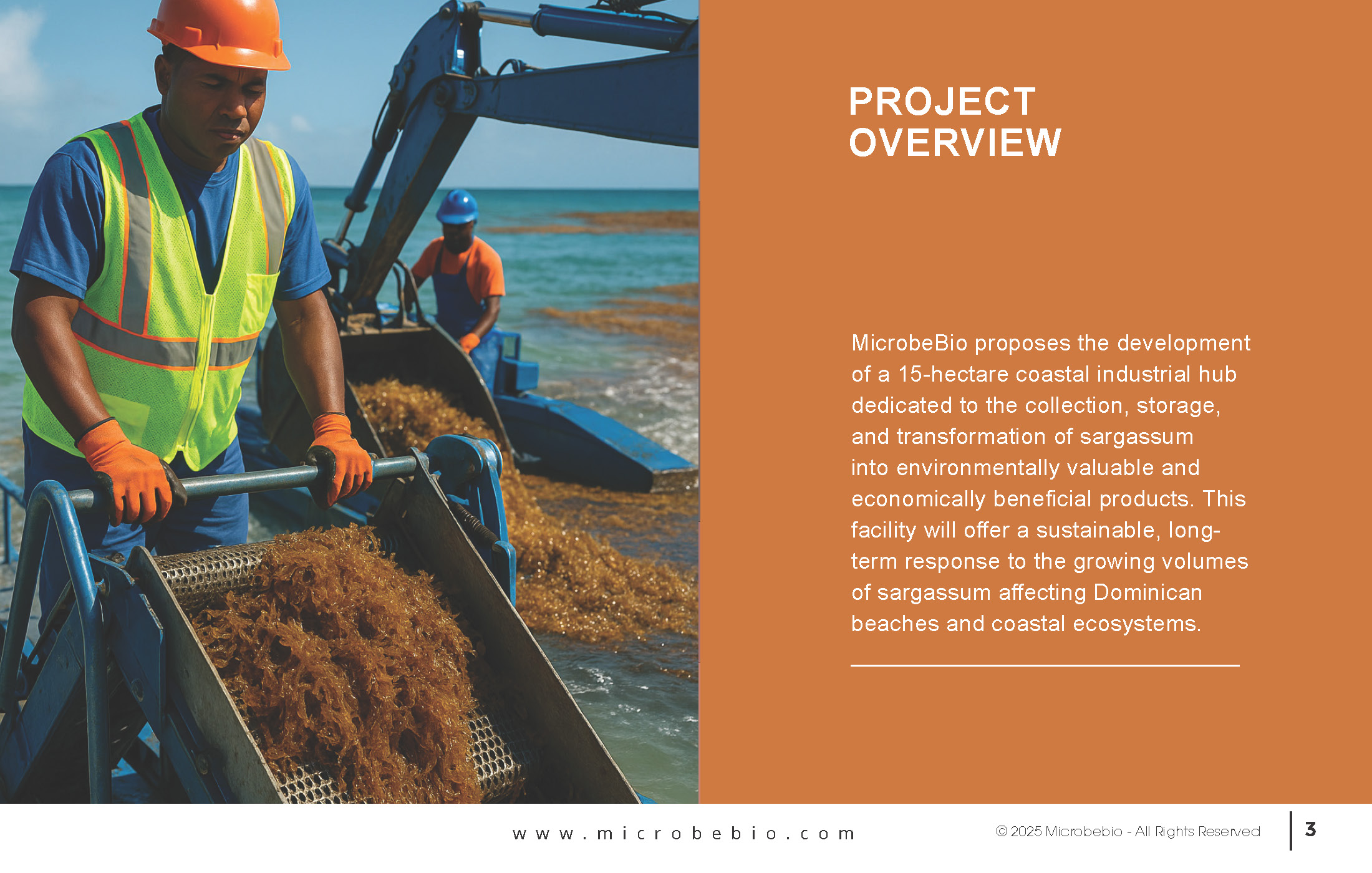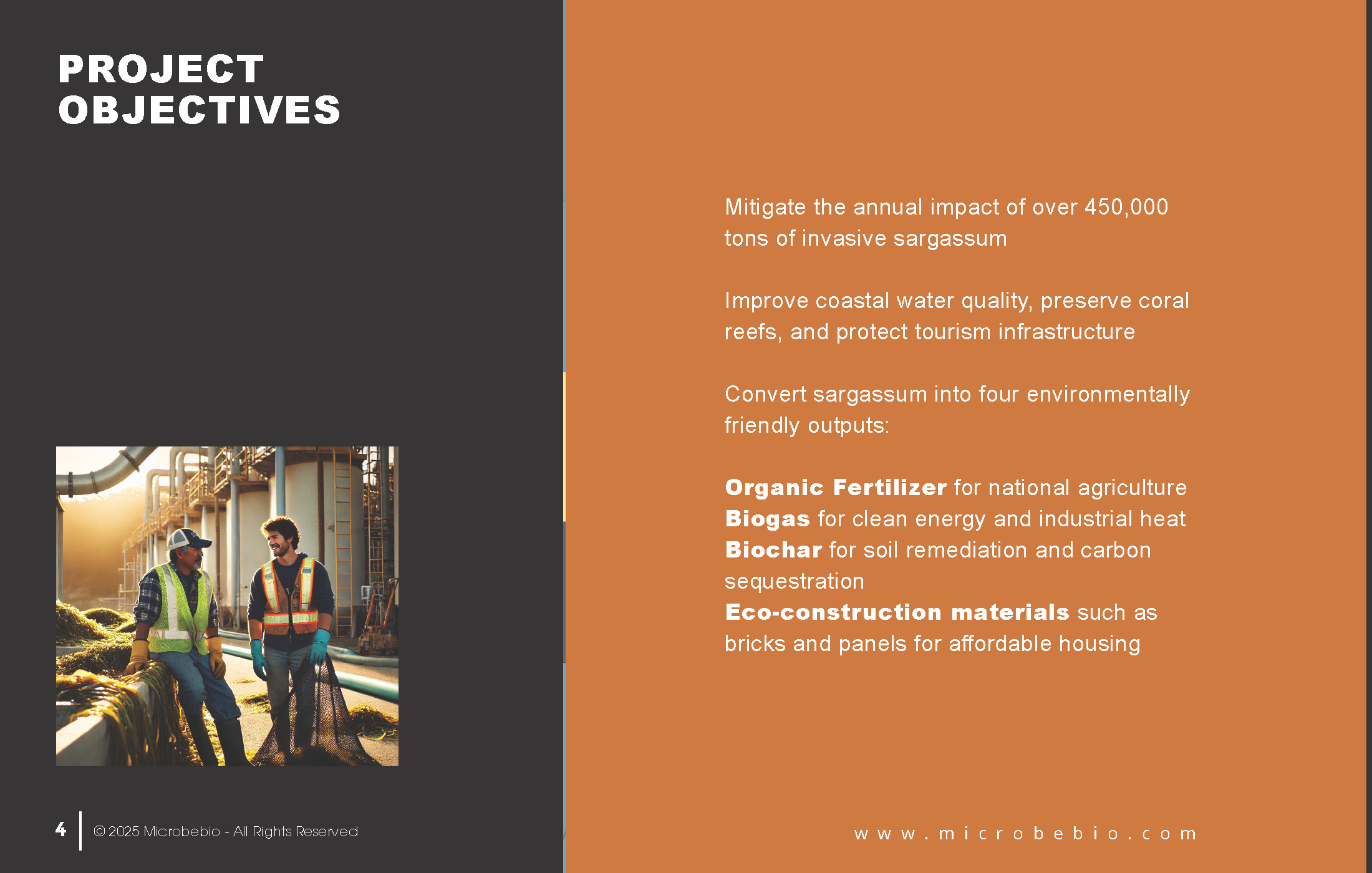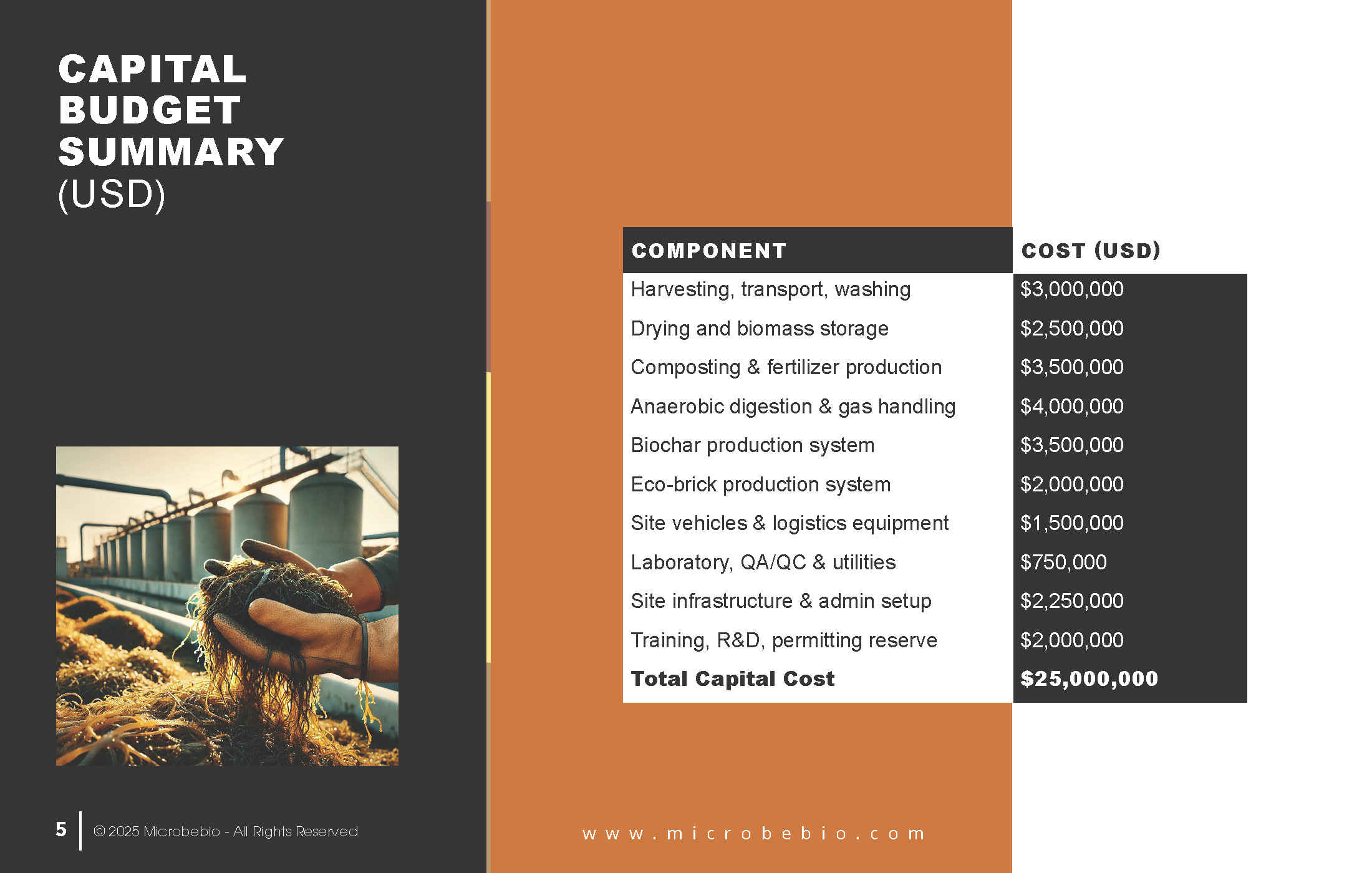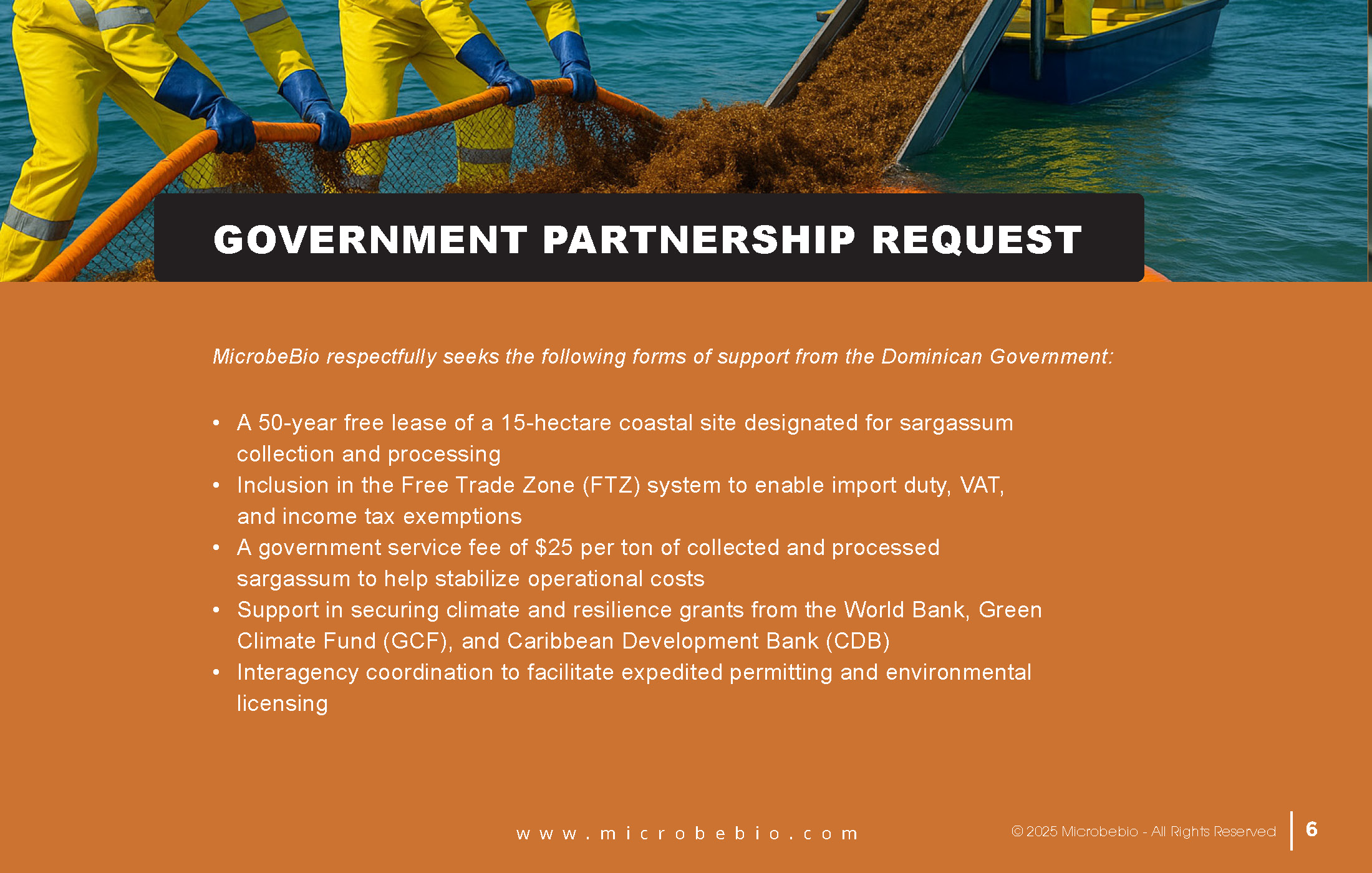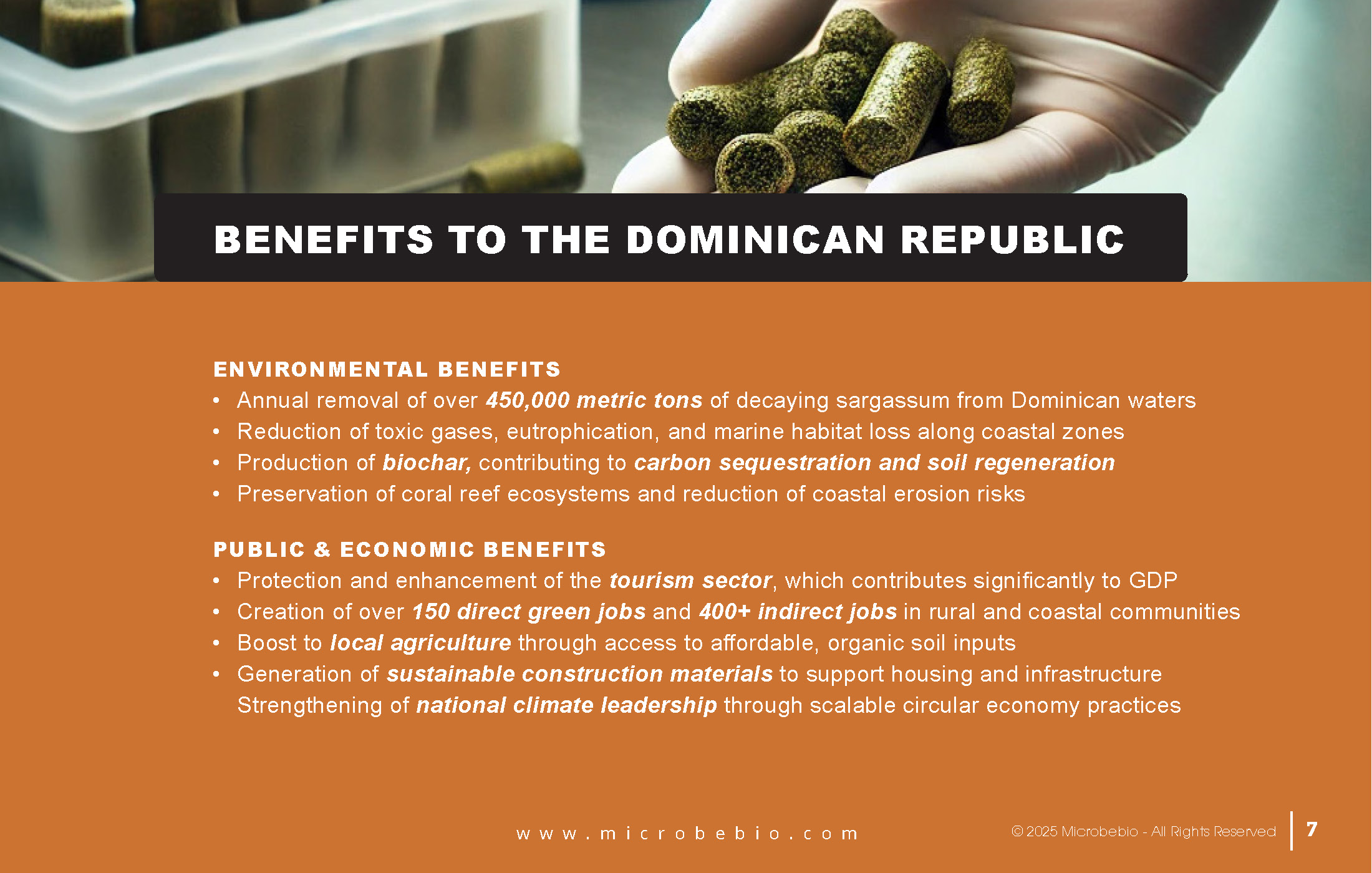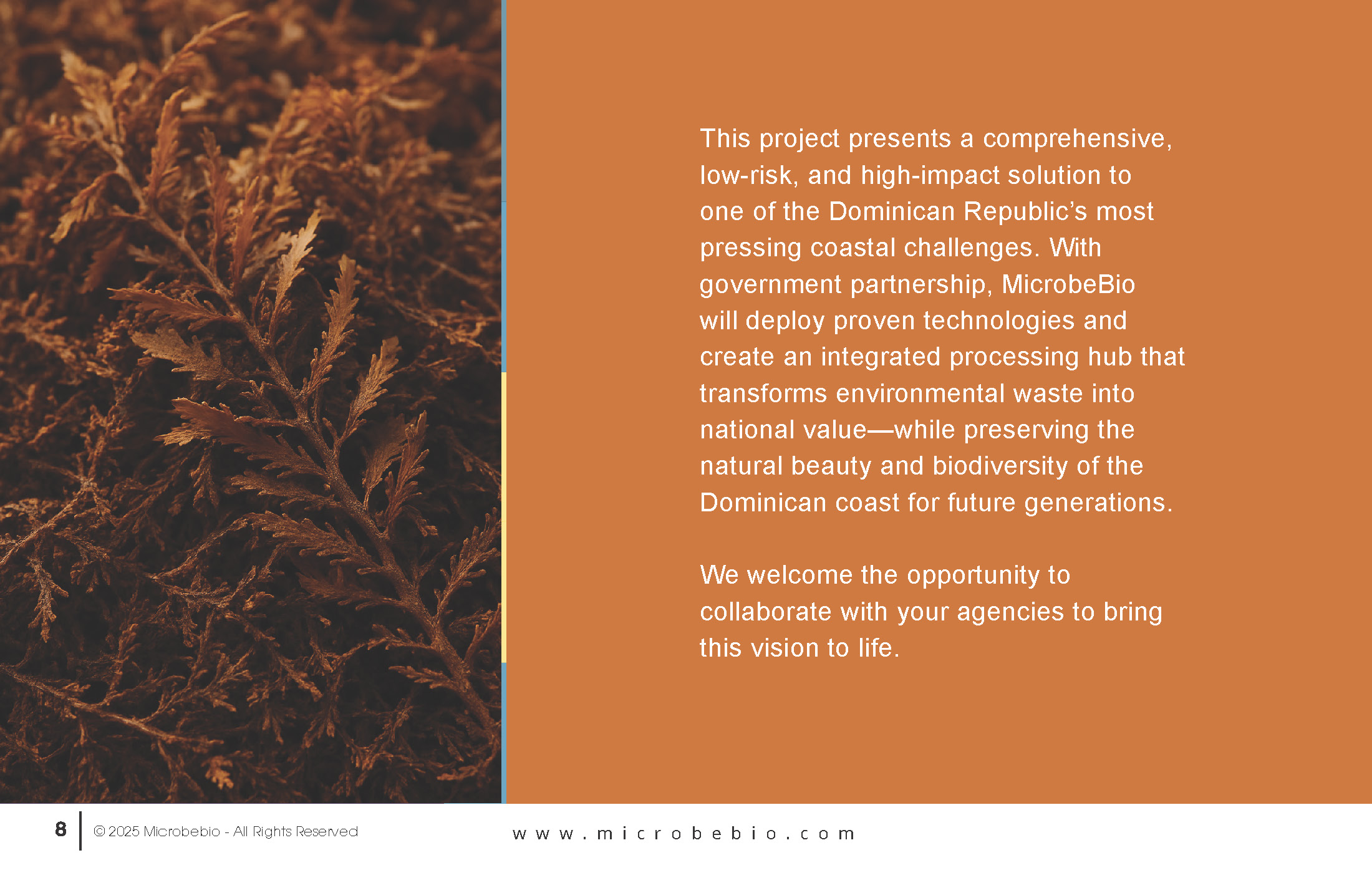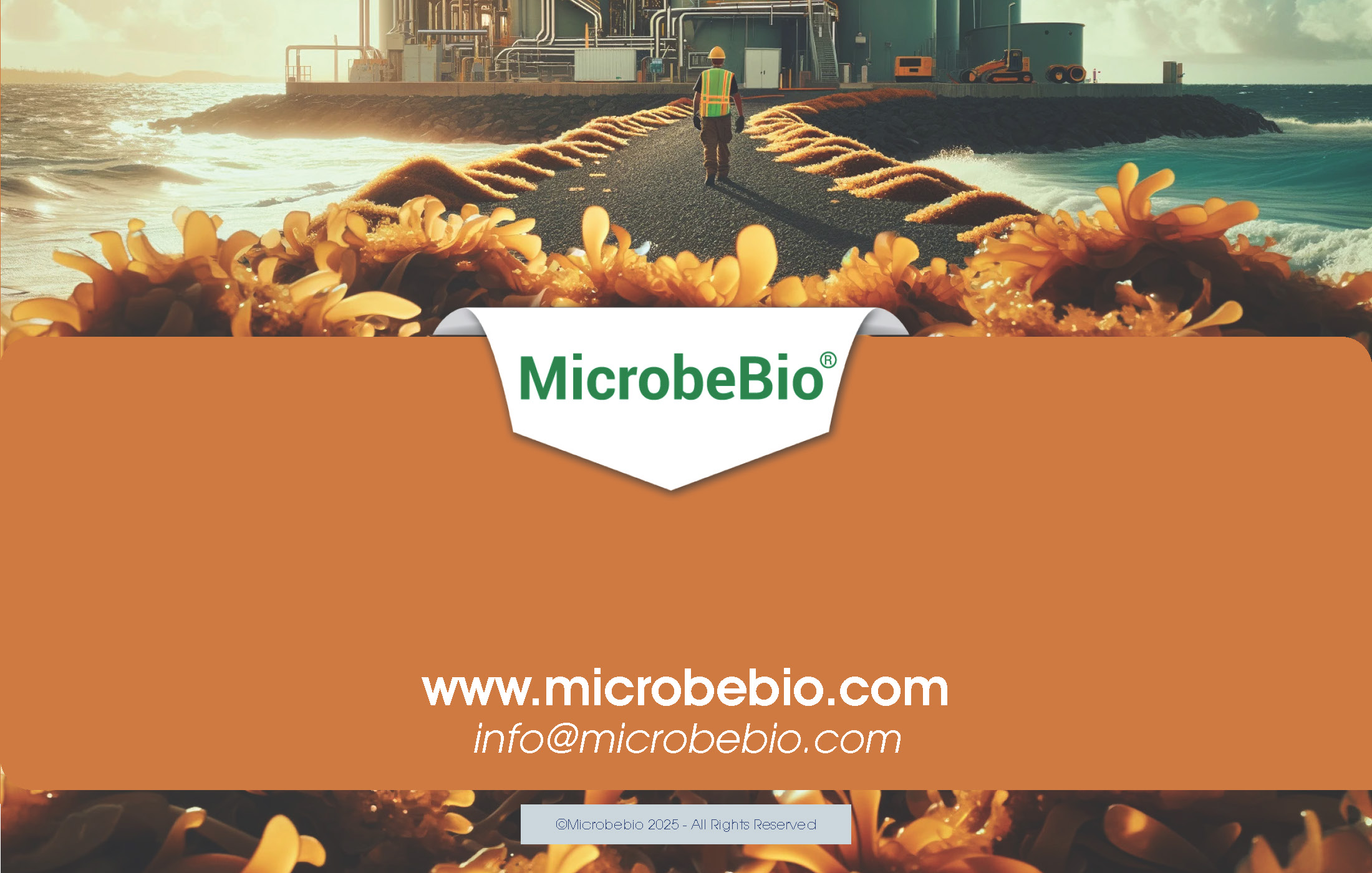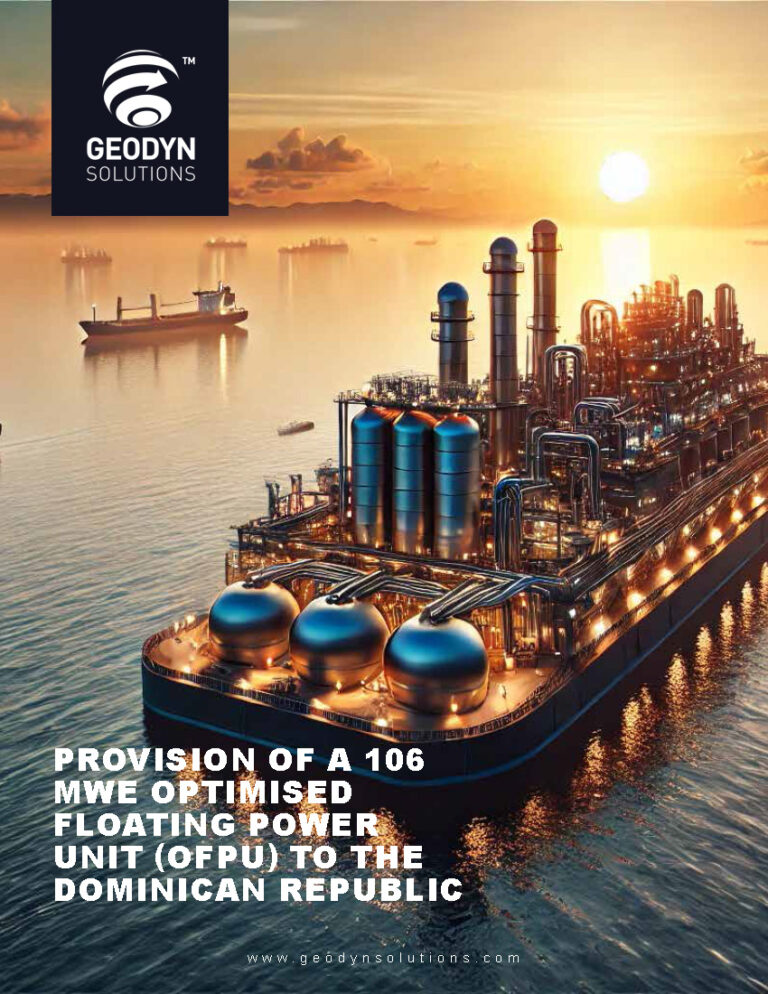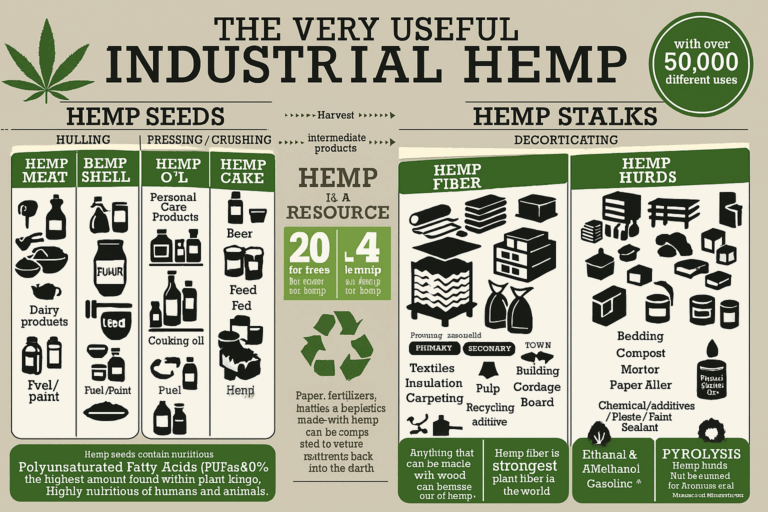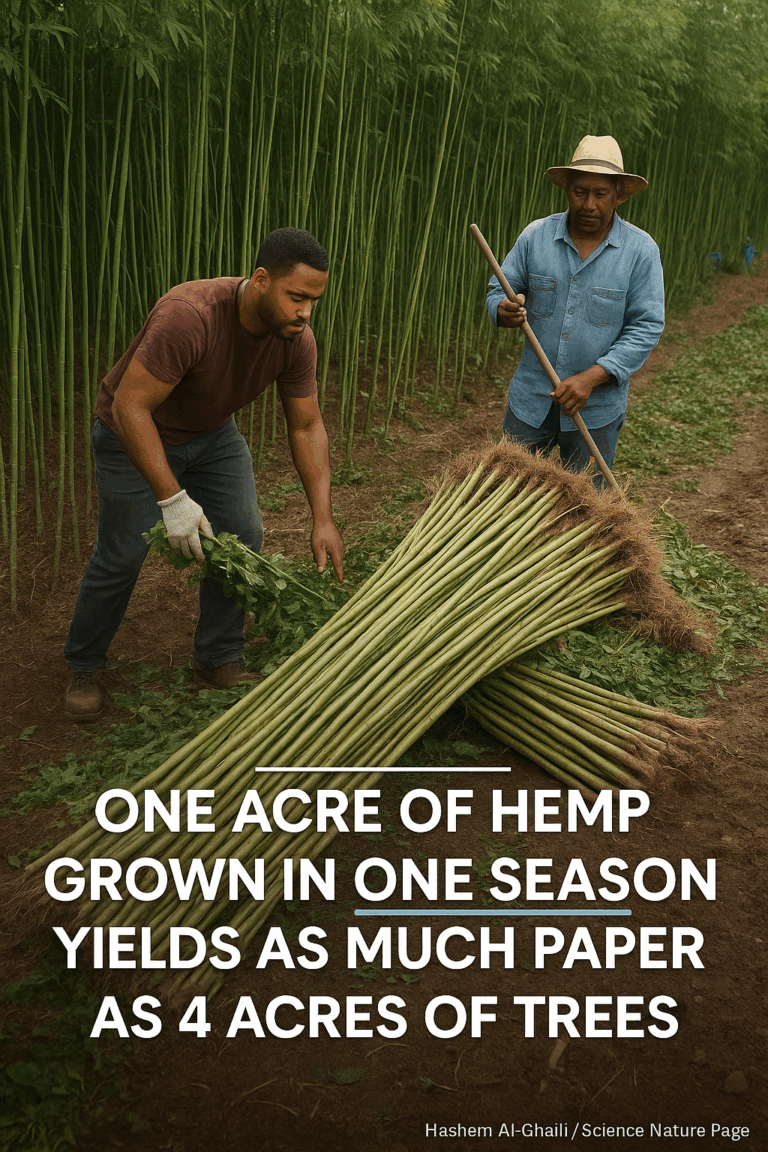MicrobeBio Sargassum Bioeconomy Hub
Location: Coastal Free Trade Zone, Dominican Republic
Proposed by: MicrobeBio
Project Type: Public-Private Partnership
Total Capital Investment: $25 Million USD (includes 20% contingency)
Project Overview
MicrobeBio proposes the development of a 15-hectare coastal industrial hub dedicated to the collection, storage, and transformation of sargassum into environmentally valuable and economically beneficial products. This facility will offer a sustainable, long-term response to the growing volumes of sargassum affecting Dominican beaches and coastal ecosystems.
Project Objectives
- Mitigate the annual impact of over 450,000 tons of invasive sargassum
- Improve coastal water quality, preserve coral reefs, and protect tourism infrastructure
- Convert sargassum into four environmentally friendly outputs:
- Organic Fertilizerfor national agriculture
- Biogasfor clean energy and industrial heat
- Biocharfor soil remediation and carbon sequestration
- Eco-construction materialssuch as bricks and panels for affordable housing
Capital Budget Summary (USD)
Component | Cost (USD) |
Harvesting, transport, washing | $3,000,000 |
Drying and biomass storage | $2,500,000 |
Composting & fertilizer production | $3,500,000 |
Anaerobic digestion & gas handling | $4,000,000 |
Biochar production system | $3,500,000 |
Eco-brick production system | $2,000,000 |
Site vehicles & logistics equipment | $1,500,000 |
Laboratory, QA/QC & utilities | $750,000 |
Site infrastructure & admin setup | $2,250,000 |
Training, R&D, permitting reserve | $2,000,000 |
Total Capital Cost | $25,000,000 |
Government Partnership Request
MicrobeBio respectfully seeks the following forms of support from the Dominican Government:
- A 50-year free leaseof a 15-hectare coastal site designated for sargassum collection and processing
- Inclusion in the Free Trade Zone (FTZ)system to enable import duty, VAT, and income tax exemptions
- A government service fee of $25 per tonof collected and processed sargassum to help stabilize operational costs
- Support in securing climate and resilience grantsfrom the World Bank, Green Climate Fund (GCF), and Caribbean Development Bank (CDB)
- Interagency coordination to facilitate expedited permitting and environmental licensing
Benefits to the Dominican Republic
Environmental Benefits
- Annual removal of over 450,000 metric tonsof decaying sargassum from Dominican waters
- Reduction of toxic gases, eutrophication, and marine habitat loss along coastal zones
- Production of biochar, contributing to carbon sequestration and soil regeneration
- Preservation of coral reef ecosystems and reduction of coastal erosion risks
Public & Economic Benefits
- Protection and enhancement of the tourism sector, which contributes significantly to GDP
- Creation of over 150 direct green jobsand 400+ indirect jobs in rural and coastal communities
- Boost to local agriculturethrough access to affordable, organic soil inputs
- Generation of sustainable construction materialsto support housing and infrastructure development
- Strengthening of national climate leadershipthrough scalable circular economy practices
Conclusion
This project presents a comprehensive, low-risk, and high-impact solution to one of the Dominican Republic’s most pressing coastal challenges. With government partnership, MicrobeBio will deploy proven technologies and create an integrated processing hub that transforms environmental waste into national value—while preserving the natural beauty and biodiversity of the Dominican coast for future generations.
We welcome the opportunity to collaborate with your agencies to bring this vision to life.
